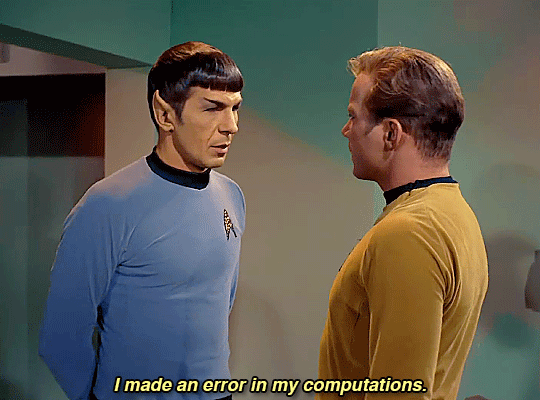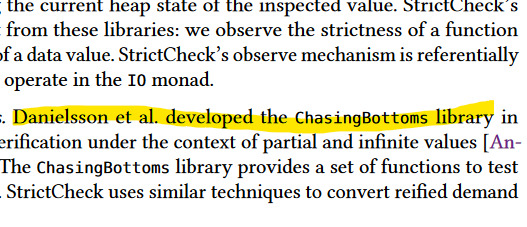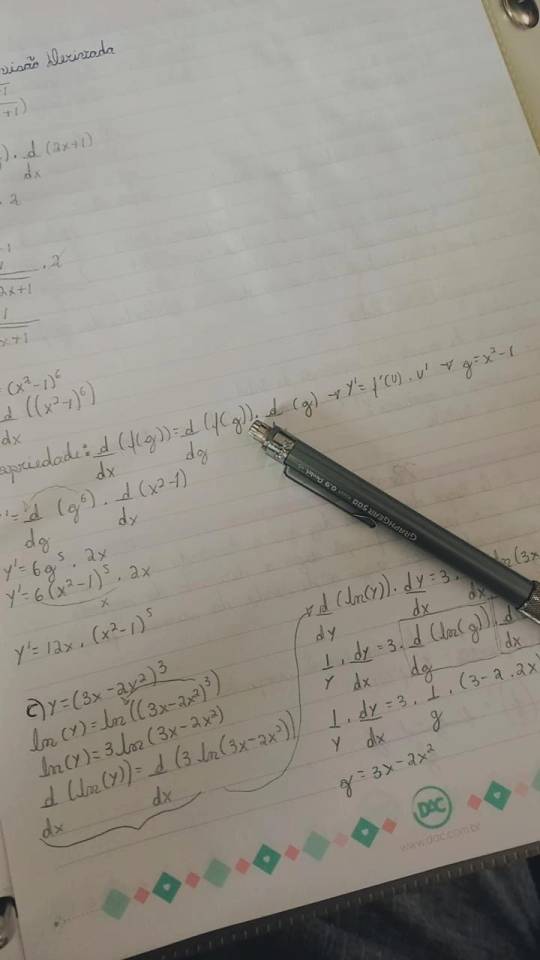#computational mathematics
Text
I am desperate enough to ask this on f-ing tumblr, but nothing else has helped so far:
Does anyone know if the 2 equilibrium points (that are not (0,0,0)) of the Lorenz system are stable or not? And what is their classification (eg saddle point etc)?
I am going insane trying to figure it out but I just can't.
#lorenz system#lorenz butterfly#marhematical modelling#dynamical systems#mathematics#computational mathematics
12 notes
·
View notes
Text
Forging Connections between Computational Mathematics and Computational Geometry
Combining his scholarly pursuits with decades of hands-on experience as a technopreneur, Dr. Anton brings together diverse and thought provoking views on Al and its impact. A good read for anyone interested in gathering deep insights on our tech-driven future.
#antonravindran#AI#ravindran anton#Dr anton#Dr.antonravindran#Bigdata#Anton Book#Cloud computing#Ai writer#Witer anton#Computational Geometry#Computational Mathematics
0 notes
Text
It's so funny to me that people think of Math/Mathematicians as being hyper-logical and rational. Like, have you seen some of the wild things hiding in the Math?
Did you know there are non-computable numbers?? (https://en.wikipedia.org/wiki/Chaitin%27s_constant)
Did you know that there are things that are true, but we can't prove them??? (https://en.wikipedia.org/wiki/G%C3%B6del%27s_incompleteness_theorems)
Did you know that we can prove that something exists, and yet never actually figure out what that thing is?? (https://mathworld.wolfram.com/NonconstructiveProof.html)
Math is crazy. Math is wild. Math hardly makes sense, and when you think you understand the weirdest parts of it, everyone who hears you explain it to thinks you're a gibbering lunatic.
"In mathematics you don’t understand things. You just get used to them." - von Neumann
(please share more unhinged math with me, i want to see more scary math)
#stem#math#mathblr#academics#mathematics#logic#stemblr#academia#proofs#computer science#theoretical computer science
2K notes
·
View notes
Text
nerd fight
my money's on geologist or engineer but I'm the one making the poll so I can't vote
feel free to reblog with reasons why you think your chosen STEM nerd would win in a fight against all the others
edit: for some reason I can vote
#tumblr polls#polls#poll#stem#stemblr#maths#mathematics#math#mathblr#physics#computer science#comp sci#engineering#chemistry#biology#geology#mathematician#physicist#computer scientist#chemist#biologist#geologist#fight#science#scientist
563 notes
·
View notes
Text
Rate your favorite logic notation
#math notation#logic#math#maths#mathematics#mathematical operators#mathblr#foundations#computer Science
333 notes
·
View notes
Text
Is it possible to deduce the shape of a drum from the sounds it makes? This is the kind of question that Iosif Polterovich, a professor in the Department of Mathematics and Statistics at Université de Montréal, likes to ask. Polterovich uses spectral geometry, a branch of mathematics, to understand physical phenomena involving wave propagation.
Last summer, Polterovich and his international collaborators—Nikolay Filonov, Michael Levitin and David Sher—proved a special case of a famous conjecture in spectral geometry formulated in 1954 by the eminent Hungarian-American mathematician George Pólya.
The conjecture bears on the estimation of the frequencies of a round drum or, in mathematical terms, the eigenvalues of a disk.
Continue Reading.
86 notes
·
View notes
Text



1x19 - Tomorrow Is Yesterday
#i learnt a new word Computations - the action of mathematical calculation#jim kirk#spock#leonard mccoy#tomorrow is yesterday#trekedit#originalposts*
509 notes
·
View notes
Text
My favorite part about modern world-class scientists and mathematicians is how none of them sound real
We've got this guy
won the Fields Medal for his work in plasma physics
reports to the French government about advancements in science and technology
doesn't look out of place as a Hogwarts professor
and this guy
uncovered a KGB hacker conspiracy ring
sells personalized glassblown Klein bottles
from a miniature robotic forklift warehouse under his house
used a slide rule in 2006
thought the internet was a fad
and especially this guy (RIP)
cracked the mystery of the NASA Challenger space shuttle explosion
cracked open safes in the Manhattan Project for funsies
won the Nobel Prize for his work in quantum electrodynamics
played the bongos on the side
couldn't tell left from right
#cedric villani#cliff stoll#clifford stoll#richard feynman#computers#math#maths#hacking#mathematics#physics#science#stem#Considering his profession and taste in fashion#you could call Cedric Villani a true mathemagician
316 notes
·
View notes
Text
I don't think we should stop teaching kids things like long multiplication/division because there is value in being able to manipulate numbers and correctly carry out an algorithmic process, but I do think we spend way more time on it than we should (at least at my school).
I hate to sound like the 'we basically always have a calculator so what's the point?' complainer kid, but... we very much do have access to a calculator most of the time. So I think kids would benefit from less time cranking out arithmetic problems and more time:
Practising good calculator use
Learning to use things like estimation, inverse calculations, parity, and check digits to spot a wrong answer
Looking at a problem and figuring out which sums to do (we already do this, but there should be more of it and calculator use should be allowed more often)
This is more for younger kids, but taking the time to make sure they understand exactly what each operation actually means (this will make the above point easier because a sentence about sharing something out between different people will scream 'division')
Learning more about the properties of the different operations (which are commutative and which aren't, which are inverses of each other - maybe things like being able to cancel factors before you divide or how multiplying by a and then by b is the same as multiplying by ab, but I know some kids who would really struggle with that)
Problem solving and logical thinking
There's way more, but anyway I think it's less important for a kid to be able to do, say, 34 x 59 by hand than it is for them to be able to recognise something like 93 (accidentally pressing + instead of x) or 3105 (pressing 5 before x instead of after) as a wrong answer.
#probably preaching to the converted here#but once you've learnt the basic operations you should be allowed to let computers do the grunt work#organic home grown content#mathematics#education#mathematics education#i'm at the pizza hut i'm at the taco bell...#100 tier
138 notes
·
View notes
Text
An illuminating experience with regards to mathematics outside of the sciences was taking Macroeconomics 101 as my elective course while doing my engineering degree. At its heart Macroeconomics is basically mathematical modelling and control theory but because you're teaching business students who don't pay attention in their Mathematics 101 course you have to dissect one extremely simple equation into eight different parts where you set some coefficients to 0 and laboriously explain each one to them as a novel phenomenon.
This course was so committed to avoiding even vaguely abstract reasoning about its equations that the supplementary document on how to draw graphs for showing the behaviour of different models expected you to draw the curves in Microsoft PowerPoint with the Shapes tools. It seems like you only really get into practical computer modelling at like third year or even post-grad level.
While I'm sure the mathematics students would have thought we belaboured the point of how differential equations work, we didn't spend that long on it. Physics 101 is all about substituting equations into other equations and seeing what happens.
248 notes
·
View notes
Text
Dorit Aharonov

Dorit Aharonov is an Israeli computer scientist specialising in quantum computing. She graduated from Weizmann Institute of Science with an MSc in Physics. She received her doctorate for Computer Science in 1999 from the Hebrew University of Jerusalem, and her thesis was entitled Noisy Quantum Computation. She also did her post-doctorate in the mathematics department of Princeton University and in the computer science department of University of California Berkeley. She was a visiting scholar at the Institute for Advanced Study in 1998–99. Aharonov was an invited speaker in International Congress of Mathematicians 2010, Hyderabad on the topic of Mathematical Aspects of Computer Science
Quantum computing
Aharonov's research is mainly about quantum information processes, which includes
quantum algorithms
quantum cryptography and computational complexity
quantum error corrections and fault tolerance
connections between quantum computation and quantum Markov chains and lattices
quantum Hamiltonian complexity and its connections to condensed matter physics
transition from quantum to classical physics
understanding entanglement by studying quantum complexity
#mathematics#maths#physics#stemblr#stem#steminist#women in stem#sub-at-omicsteminist#computing#quantum physics#computer science
148 notes
·
View notes
Text
I keep seeing software developers with my same degree, who get payed (presumably) the same as me, bragging that they copy-paste code from chatgpt, and like... Do you not have dignity? Aren't you ashamed of yourselves? The average quality of code is already abysmal, what is there to be proud in making it worse?
#software development#computer science#CS is a branch of mathematics#we could be writing code that is provably correct#instead the best practices want us to write code that is 'maybe' correct#and now we've started copy-pasting code that is provably wrong#i think we should start from scratch#back from the top#back to the turing machine and the lambda calculus#maybe we can get something better this time around
96 notes
·
View notes
Text
Why should you care about quantum computers?
Post #5 on Physics and Astronomy, 23/09/23
Welcome back. It’s been a while.
First, let’s backtrack. What even are quantum computers?
Today’s computers are run on bits. These are the smallest increment of data on a computer, and are run in binary–they can be in the state of either 0 or 1. This essentially corresponds to two values: off and on.
This, therefore, means that information can only remain in one, definite state.
So, what makes quantum computers so different?
A quantum computer is run on qubits (short for quantum bits). Qubits, instead of a single state, can remain in an arbitrary superposition of states (meaning it’s not in any specific state until it’s measured). Qubits, on their own, aren’t particularly useful. But it performs one, very useful, function: it can store a combination of all possible states of the qubit into one area. This means that complex problems can be represented differently in qubits compared to bits.
Quantum computers aren’t fully developed and at their full capacity quite yet. So far, there’s nothing a quantum computer can do that a regular supercomputer cannot. However, this opens an opportunity for some wonderful new things to happen.
One of these things can include the cracking of passwords.
Today’s encryption works by using “trapdoor” functions, which means that data is easy to compute in the forward direction, but extremely difficult to crack in the reverse without special keys. Keywords, ‘extremely difficult’; it is not impossible. However, this is not a massive concern: encryption works on the basis that it would simply take too long to crack.
To give you a tangible example, 100,003 and 131,071 are relatively easy to multiply together, giving you the answer 13,107,493,213. How easy, however, would it be to determine a prime factor pair of this number? It would take a computer a long time to figure this out, since it runs on bits, which can only show one definite state of data.
With quantum computers, it’s different. As aforementioned, qubits can remain in a superposition of states; somewhere in there, the desired answer lies. It’s just a matter of obtaining the resources to make this happen.
Don’t worry, though. Ordinary people aren’t at any risk quite yet.
#physics#astronomy#studyblr#astrophysics#stem#sixth form#mathematics#quantum physics#quantum computing#engineering#encryption#alevels
78 notes
·
View notes
Text
Today on episode 8923173289119 of "Programmers Should Not Be Allowed To Name Anything Ever Again":

(The paper in which I found this citation: https://dl.acm.org/doi/pdf/10.1145/3236797)
(The actual paper: https://link.springer.com/chapter/10.1007/978-3-540-27764-4_6)
#stem#academics#academia#computer science#theoretical computer science#haskell#research#math#mathblr#mathematics#stemblr#technology
166 notes
·
View notes
Text
I found a book specifically for finite model theory that contains like 80% of all the things that interest me in math... Let's just say my motivation is back.
#it's elements of finite model theory by libkin#math#studyblr#mathblr#mathematics#finite model theory#computational complexity
44 notes
·
View notes
Text



𝕱𝖊𝖇𝖗𝖚𝖆𝖗𝖞 7𝖙𝖍, 2024

Today I studied Calculus and did some exercises to practice, and I also reviewed some old concepts and started researching those that I will learn in Calculus II, such as integrals ~

#studying#calculus#stem academia#studyblr#study motivation#study aesthetic#stem#studyspo#engineering#studyinspo#computer engineering#mathematics#mathblr#stemblr#study blog
32 notes
·
View notes